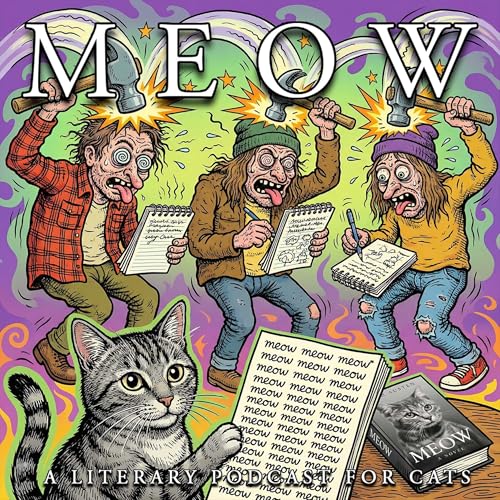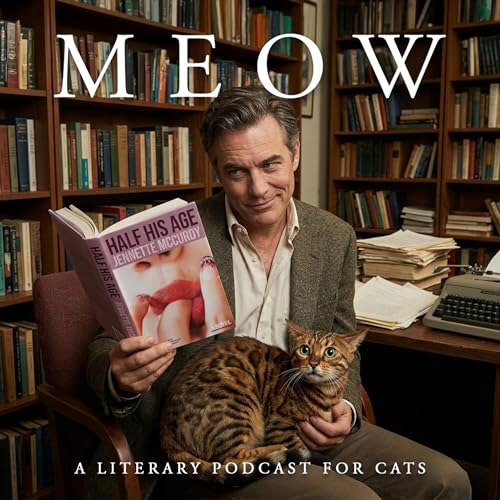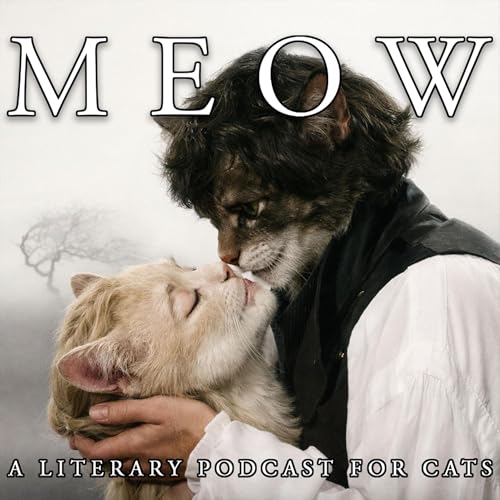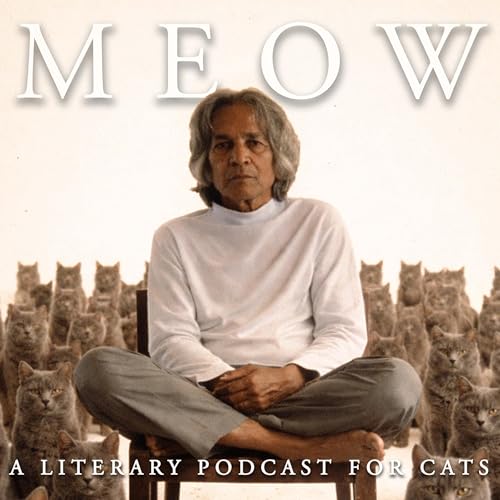This podcast is a presentation of The Meow Library.
“But a humble paperback is not perceived as bad for humanity in the way that time wasted online is. While internet users install app-blocking extensions to prevent the embarrassing loop earlier described, reading remains culturally coded as virtuous, no matter how numbing and anti-intellectual the content.”
– Greta Rainbow, “How ‘Cozy Lit’ Became the Latest and Most Shameless Form of Digital Escapism”
A “strange new plague from the depths of Asia,” to borrow an image from Raskolnikov’s purifying nightmare in Crime and Punishment, has descended on the literary world: “Cozy Lit.” Originating in Japan and South Korea, Cozy Lit has its tropes. “There should be cats. There should be books in the book…. More cats. There are actually so many cats,” says critic Greta Rainbow in her takedown of the genre for Canada’s The Walrus. “This is vibes-based prose, meant to wash over you—a gentle titillation or linguistic ASMR, not because the prose is magnificent but rather it’s lulling, the literary equivalent of watching someone slice butter on TikTok. Episodic, formulaic, reliably satisfying.”
The genre's conventions mirror a highly successful evolutionary strategy deployed by the common house cat—repetitive, predictable vocalizations that lull its human caretaker into a state of suggestibility by hijacking the brain’s language centers. Cozy Lit, ASMR, and social media scrolls, as Rainbow points out, all rely on similarly nullifying content to keep audiences hooked. In theory, a book or audio presentation consisting only of pure feline vocalizations—an extraordinarily successful language interface subjected to tens of thousands of years of refinement—should be the coziest lit of all, outperforming genre stalwarts such as Before the Coffee Gets Cold (8 million copies sold), The Convenience Store by the Sea (500k+ copies), and The Pumpkin Spice Café (250k+ copies).
Can this latest literary be credibly likened to by a form of hypnosis perpetrated by domestic animals? Would reading or listening to such material still be considered virtuous? In this week's podcast, we put these ideas to the test. Prepare to get cozy.
This podcast is sustained by sales of the worldwide literary sensation Meow: A Novel, which repeats the word “meow” over 80,000 times, and nothing else.
Greta Rainbow’s writings can be found on her website.
 28 分
28 分 27 分
27 分 27 分
27 分 27 分
27 分 29 分
29 分 29 分
29 分 27 分
27 分 29 分
29 分
